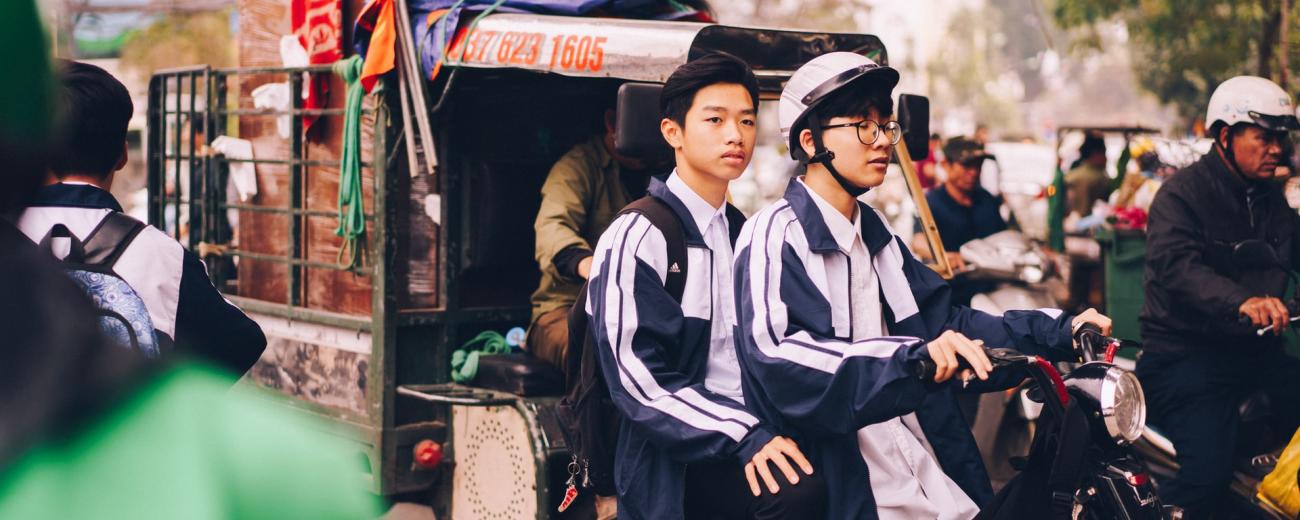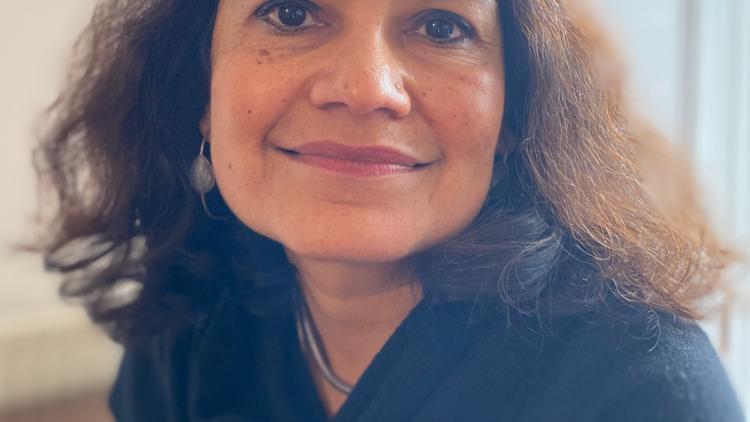MA Social Anthropology


Key information
- Duration
- One calendar year (full-time); two or three years (part-time, daytime only)
- Start of programme
- September intake only
- Attendance mode
- Full-time or part-time
- Location
- Russell Square, College Buildings
- Fees
-
Home student fees: £12,220 per year
Overseas student fees: £25,320 per yearPlease note that fees go up each year.
See postgraduate fees for further details. - Course code
- L6U2
- Entry requirements
-
Afghanistan: Qualifications (Bachelor equivalency): Master's degree
Equivalent to 2:ii: 80% or 3.3/4.0
-
Argentina: Qualifications (Bachelor equivalency): Titulo / Grado de Licenciado
Equivalent to 2:ii: 7/10
-
Australia: Qualifications (Bachelor equivalency): Bachelor degree
Equivalent to 2:ii: 2:2 or Credit or 65%
-
Austria: Qualifications (Bachelor equivalency): Bachelor degree
Equivalent to 2:ii: 2.5/5.0 and overall Pass (Bestanden)
-
Bahrain: Qualifications (Bachelor equivalency): Bachelor degree
Equivalent to 2:ii: 75% or GPA 3.0/4.0
-
Bangladesh: Qualifications (Bachelor equivalency): Bachelor’s from Bangladesh University of Engineering and Technology or Master's degree
Equivalent to 2:ii: 60% or GPA 3.0/4.0
-
Belgium: Qualifications (Bachelor equivalency): Licentiaat or Licencié
Equivalent to 2:ii: 13/20 or 65%
-
Botswana: Qualifications (Bachelor equivalency): Bachelor degree (5-year) or Master's from University of Botswana
Equivalent to 2:ii: GPA 3.5/5.0 or 65% or B- or Good
-
Brazil: Qualifications (Bachelor equivalency): Título de Bacharel / Título de Licenciado (4-year)
Equivalent to 2:ii: 7/10 or 70%
-
Brunei: Qualifications (Bachelor equivalency): Bachelor degree
Equivalent to 2:ii: Lower Second Class Honours with 50% overall
-
Bulgaria: Qualifications (Bachelor equivalency): Bachelor degree
Equivalent to 2:ii: 4.3/6
-
Cameroon: Qualifications (Bachelor equivalency): Diplôme d'Ingénieur/ Diplôme d'Études Supérieures de Commerce (5-year)
Equivalent to 2:ii: 12-13 assez bien (fair); 70-74; or B+
-
Canada: Qualifications (Bachelor equivalency): Bachelor degree
Equivalent to 2:ii: GPA 3.0/4.0 or 74-77% or overall B
-
China Qualifications (Bachelor equivalency): Bachelor degree (4-year)
Equivalent to 2:ii:
73% or 2.6/4.0 (C9 unis)
75% or 2.8/4.0 (Double First unis)
80% or 3.25/4.0 (all other unis) -
Colombia: Qualifications (Bachelor equivalency): Licenciado / Titulo (4-year)
Equivalent to 2:ii: 3.5/5.0
-
Croatia: Qualifications (Bachelor equivalency): Baccalaureus / Baccalaurea (Bachelor degree)
Equivalent to 2:ii: Overall score 3/5
-
Cyprus: Qualifications (Bachelor equivalency): Bachelor degree
Equivalent to 2:ii: 6.5/10
-
Czech Republic: Qualifications (Bachelor equivalency): Bachelor degree (180 ECTS)
Equivalent to 2:ii: 1.75/4.0 or High C 'dobre’ (good)
Information for prospective students from the Czech Republic
-
Denmark: Qualifications (Bachelor equivalency): Bachelor degree
Equivalent to 2:ii: 7/12 or 8/13 or grade C
-
Egypt: Qualifications (Bachelor equivalency): Bachelor degree
Equivalent to 2:ii: 70% or 3.0/4.0
-
Estonia: Qualifications (Bachelor equivalency): Bakalaurusekraad / University Specialist's Diploma / Professional Higher Education Diploma
Equivalent to 2:ii: 4.0/5.0
-
Finland: Qualifications (Bachelor equivalency): Bachelor / Kandidaatti / Kandidat (180 ECTS credits)
Equivalent to 2:ii: 3/5 or 2/3
-
France: Qualifications (Bachelor equivalency): Licence or Diplôme from a grande école
Equivalent to 2:ii: 11.5 out 20
-
Gambia: Qualifications (Bachelor equivalency): Master's degree (2-year)
Equivalent to 2:ii: GPA 3.0/4.3 or 64% or B
-
Germany: Qualifications (Bachelor equivalency): Bachelor degree (180 ECTS)
Equivalent to 2:ii: 2.6/5
-
Ghana: Qualifications (Bachelor equivalency): Bachelor degree
Equivalent to 2:ii: 2:2 (Second Class Lower Division) or GPA 3.25/5.0 or 60%
-
Greece: Qualifications (Bachelor equivalency): Bachelor degree
Equivalent to 2:ii: 6.50/10
-
Hong Kong: Qualifications (Bachelor equivalency): Bachelor degree
Equivalent to 2:ii: Upper second class or GPA 2.7/4.0 or 75% or B Minus
-
Hungary: Qualifications (Bachelor equivalency): Bachelor (Alapfokozat) or Diploma (Egyetemi Oklevél)
Equivalent to 2:ii: 3.5/5.0
-
Iceland: Qualifications (Bachelor equivalency): Bachelor degree (Baccalaureus or Bakkalarprof)
Equivalent to 2:ii: 7.0 out of 10
-
India: Qualifications (Bachelor equivalency): Bachelor degree
Equivalent to 2:ii: CGPA: 55-60% or 5.5/10 - 6.0/10
-
Iraq: Qualifications (Bachelor equivalency): Bachelor degree (Licence/Karshani)
Equivalent to 2:ii: 0.7
-
Israel: Qualifications (Bachelor equivalency): Bachelor degree
Equivalent to 2:ii: 70% or C+
-
Italy: Qualifications (Bachelor equivalency): Laurea (180 ECTS)
Equivalent to 2:ii: 100/110
-
Japan: Qualifications (Bachelor equivalency): Bachelor degree
Equivalent to 2:ii: 70% or C+ or 3.0
-
Jordan: Qualifications (Bachelor equivalency): Bachelor degree
Equivalent to 2:ii: 3.0/4.0 or 70%
-
Kazakhstan: Qualifications (Bachelor equivalency): Bachelors (Bakalavr Diplomi) or Specialist Diploma
Equivalent to 2:ii: GPA 3.0/4.0 or GPA 4.0/5.0 or B
-
Kenya: Qualifications (Bachelor equivalency): Bachelor degree
Equivalent to 2:ii: 2:2 or 60%
-
Kuwait: Qualifications (Bachelor equivalency): Bachelor degree
Equivalent to 2:ii: 3.0/
-
Latvia: Qualifications (Bachelor equivalency): Bakalaura Diploms (Bachelor's) or Profesionālā Bakalaura Diploms
Equivalent to 2:ii: 7/10
-
Lebanon: Qualifications (Bachelor equivalency): Bachelor degree / Licence
Equivalent to 2:ii: 75% or Grade B-/C+ or GPA 2.8/4.0 or 14/20
-
Liberia: Qualifications (Bachelor equivalency): Master's degree
Equivalent to 2:ii: 75% or 2.8/4.0
-
Libya: Qualifications (Bachelor equivalency): Bachelor Degree from selected institution
Equivalent to 2:ii: 75% or GPA 3.0/4.0
-
Lithuania: Qualifications (Bachelor equivalency): Bachelors / Bakalauro (180 ECTS)
Equivalent to 2:ii: 7.5/10
-
Malawi: Qualifications (Bachelor equivalency): Master's degree
Equivalent to 2:ii: 70% or GPA 3.0/4.0
-
Malaysia: Qualifications (Bachelor equivalency): Bachelor degree
Equivalent to 2:ii: 3.0/4.0 or B (Class 2 Division 2)
-
Malta: Qualifications (Bachelor equivalency): Bachelor degree
Equivalent to 2:ii: Lower Second Class with 65% or Category IIB
-
Mexico: Qualifications (Bachelor equivalency): Titulo de Licenciado
Equivalent to 2:ii: 8/10 or 80%
-
Morocco: Qualifications (Bachelor equivalency): Licence / Licence d'Etudes Fondamentales / Licence Professionnelle
Equivalent to 2:ii: 13/20
-
Nepal: Qualifications (Bachelor equivalency): Master's degree / Bachelor degree (4-year)
Equivalent to 2:ii: 70%
-
Netherlands: Qualifications (Bachelor equivalency): Bachelor degree
Equivalent to 2:ii: 6.5/10 or GPA 3.0
-
New Zealand: Qualifications (Bachelor equivalency): Bachelor degree
Equivalent to 2:ii: Majority of credited modules B- or above
-
Nigeria: Qualifications (Bachelor equivalency): Bachelor degree
Equivalent to 2:ii: Lower Second Class or 55% or GPA 3.0/5.0 or 2.5/4.0 or 4.0/7.0
-
Norway: Qualifications (Bachelor equivalency): Bachelors / Bachelorgrad (180 ECTS) or Candidatus /a magisterii
Equivalent to 2:ii: Grade C (with at least 80 ECTS) at grade B or 3.2
-
Oman: Qualifications (Bachelor equivalency): Bachelor degree
Equivalent to 2:ii: 3.0/4.0
-
Pakistan: Qualifications (Bachelor equivalency): Bachelor (4-year) / Master's from HEC recognised institution
Equivalent to 2:ii: CGPA 2.7 or 65%
-
Philippines: Qualifications (Bachelor equivalency): Master’s from recognised institution or Centre of Excellence / Bachelor from prestigious institution or Centre of Excellence
Equivalent to 2:ii:
Prestigous Universities: GPA 3.3/4.0 or 1.75/5.0 or Grade B or 83%
Recognised Universities: GPA 3.5/4.0 or 2.0/5.0 or Grade B or 87% -
Poland: Qualifications (Bachelor equivalency): Licencjat or Inżynier (3-year)
Equivalent to 2:ii: 4.25/5
-
Portugal: Qualifications (Bachelor equivalency): Licenciado (180 ECTS)
Equivalent to 2:ii: 15/20
-
Qatar: Qualifications (Bachelor equivalency): Bachelor degree
Equivalent to 2:ii: GPA 3.0/4.0 or 3.5/5.0 or 70% or 7/10
-
Romania: Qualifications (Bachelor equivalency): Diplomă de Licenţă / Diplomă de Inginer / Diplomă de Urbanist Diplomat
Equivalent to 2:ii: 8/10
-
Russia: Qualifications (Bachelor equivalency): Diplom Bakalavra or Specialist Diploma
Equivalent to 2:ii: 3.8/5.0
-
Rwanda: Qualifications (Bachelor equivalency): Bachelor (4-year)
Equivalent to 2:ii: Lower Second Class Honours or 65-69% or 14/20
-
Saudi Arabia: Qualifications (Bachelor equivalency): Bachelor degree
Equivalent to 2:ii: GPA of 3.0/4.0 or 3.5/5.0 or overall 70%
-
Singapore: Qualifications (Bachelor equivalency): Bachelor degree
Equivalent to 2:ii: CAP 3.5/5.0 or 3.0/4.0
-
Slovakia: Qualifications (Bachelor equivalency): Bakalár / Bachelor
Equivalent to 2:ii: 70% or 2.0 overall or C
-
South Africa: Qualifications (Bachelor equivalency): Bachelor (4-year)
Equivalent to 2:ii: 60%
-
South Korea: Qualifications (Bachelor equivalency): Bachelor degree
Equivalent to 2:ii: GPA 2.7/4.0 or 3.0/4.3 or 3.3/4.5
-
Spain: Qualifications (Bachelor equivalency): Título de Grado / Título de Licenciado / Título de Ingeniero / Titulo de Arquitecto
Equivalent to 2:ii: 6.5/10 or GPA 1.75/4.0
-
Sri Lanka: Qualifications (Bachelor equivalency): Bachelor Special Degree or Professional Degree (4-year)
Equivalent to 2:ii: 55% or 2:2 or GPA 3.0/4.0
-
Sudan: Qualifications (Bachelor equivalency): Bachelor (5-year)
Equivalent to 2:ii: 65%+ or B
-
Sweden: Qualifications (Bachelor equivalency): Bachelor degree / Kandidatexamen / Yrkesexamen
Equivalent to 2:ii: B (90 credits) and C (90 credits) or Very Good (70 credits) and Good (110 Credits) or C (180 credits)
-
Switzerland: Qualifications (Bachelor equivalency): Diplom / Diplôme / Lizentiat / Staatsdiplom / Diplôme d’Etat
Equivalent to 2:ii: Overall 4.5/6 or 7/10 or 2.5/5
-
Syria: Qualifications (Bachelor equivalency): Licence / al-ijaza-fi / Bachelor
Equivalent to 2:ii: 70%+ or 'Good'
-
Taiwan: Qualifications (Bachelor equivalency): Bachelor degree
Equivalent to 2:ii: 68-70% or GPA 2.8/4.0-3.0/4.0
-
Thailand: Qualifications (Bachelor equivalency): Bachelor degree
Equivalent to 2:ii: GPA 3.0/4.0
-
Tunisia: Qualifications (Bachelor equivalency): Diplôme National d'Ingénieur / Diplôme National d'Architecture / Licence / Maîtrise
Equivalent to 2:ii: 12 out of 20
-
Turkey: Qualifications (Bachelor equivalency): Lisans Diplomasi
Equivalent to 2:ii: GPA 2.6/4 from the top universities and 3.0/4 from all others
-
Uganda: Qualifications (Bachelor equivalency): Bachelor degree
Equivalent to 2:ii: 2:2 (Lower Second) or B or GPA 3.0/5.0
-
Ukraine: Qualifications (Bachelor equivalency): Bachelor degree or Specialist Diploma
Equivalent to 2:ii: 8/12 or 3.8/5
-
United Arab Emirates: Qualifications (Bachelor equivalency): Bachelor degree
Equivalent to 2:ii: GPA 3.0/4.0 or 3.2/5.0
Information for prospective students from the United Arab Emirates
-
United States of America: Qualifications (Bachelor equivalency): Bachelor degree
Equivalent to 2:ii: GPA 3.0/4.0
-
Vietnam: Qualifications (Bachelor equivalency): Bachelor degree (4-year)
Equivalent to 2:ii: Overall score of 6.5/10
-
Yemen: Qualifications (Bachelor equivalency): Master's degree
Equivalent to 2:ii: Overall 'Good' (71-77%) or Aden University 80-83% (or 3.0/4.0)
-
Zambia: Qualifications (Bachelor equivalency): Master's degree
Equivalent to 2:ii: 65% or B or Credit or GPA 1.7/2.5 or 3.3/5.0
-
Zimbabwe: Qualifications (Bachelor equivalency): Bachelor degree
Equivalent to 2:ii: 2:2 or 65%
-
We will consider all applications with a 2:2 (or international equivalent) or higher in a social science or humanities subject. In addition to degree classification we take into account other elements of the application such as supporting statement. References are optional, but can help build a stronger application if you fall below the 2:2 requirement or have non-traditional qualifications.
See international entry requirements and English language requirements
Course overview
Are you interested in how different people around the world do things differently? Have you ever questioned the taken for granted assumptions about what is “normal” behaviour in your culture, your workplace, or in powerful institutions? Have you got an interest in culture, behaviour, cultural heritage, or social justice? If so, then anthropology is the subject for you.
Social anthropology is the study of people, cultures and societies around the world. It takes cultures on their own terms, and values the importance of culture to helping us understand the world we live in. Social Anthropology gives us the tools that we need to understand human cultural and social difference, and to really start to make sense of how people, groups and organisations think about the world.
Social anthropology at SOAS is an introduction to the discipline of anthropology and its history, its theories, and methods. You do not need to have studied anthropology before to get the most out of this programme. It is the perfect introduction to the anthropological way of seeing the world and global problems or would be the perfect way to convert into the discipline if you wish to pursue a research degree later.
If you have studied anthropology before, a postgraduate degree at SOAS will allow you to develop your specialisms and research interests even further, including the possibility of learning a new language and delving deeper into a topic through a self-designed research project on our Dissertation module
Why study MA Social Anthropology at SOAS?
- SOAS is ranked 5th in the UK and 12th in the world for Anthropology (QS World University Rankings 2023), and 4th in the UK (2023 Times/Sunday Times League Table)
- SOAS Anthropology is ranked 2nd among Anthropology departments in the UK (REF 2022)
- We are ranked 6th in the UK for employability (QS World University Rankings 2023).
- We draw on the exceptional regional expertise of our academics in languages, cultures and politics, many of whom have joined us with a practical working knowledge of their disciplines.
- Join our thriving community of alumni and academics who have an impact on the outside world of academia.
- You can flexibly structure your programme using our optional modules and/or the optional modules from other departments, including the opportunity to learn a regional language.
- We are specialists in the delivery of languages; your command of a language at SOAS will set you apart from graduates of other universities.
- Our focus on the culture, politics and cultural communication are areas of growing global concern and significance among private, public and international institutions; our emphasis on skills, communication and methodology gives graduates a clear advantage with employers in the job market.
Structure
The programme consists of 180 credits in total: 120 credits of taught modules and a dissertation of 10,000 words at 60 credits.
There are three types of taught modules: Compulsory (45 credits), Guided Options (45 credits, chosen from Lists A and B below), and Open Options (30 credits, chosen from the School-wide open options list, including languages).
Learn a language as part of this programme
Degree programmes at SOAS - including this one - can include language courses in more than forty African and Asian languages. It is SOAS students’ command of an African or Asian language which sets SOAS apart from other universities.
Important notice
The information on the website reflects the intended programme structure against the given academic session. The modules are indicative options of the content students can expect and are/have been previously taught as part of these programmes.
However, this information is published a long time in advance of enrolment and module content and availability is subject to change.
Compulsory modules
All students take 45 credits of compulsory modules:
| Module | Credits |
|---|---|
| 701 Contemporary Anthropological Theory | 15 |
| 702 Ethnographic Research Methods | 15 |
| 721 Ethnographic Encounters | 15 |
Guided options
All students choose 30-45 credits from List A and up to 15 credits from List B
List A - Options (30-45 credits)
LIST B - Regions (0-15 credits)
Open options
All students choose 30 credits from the School open options list, including languages.
Dissertation
All students enrol in the dissertation module:
| Module | Credits |
|---|---|
| 799A Dissertation (MA) in Anthropology | 60 |
Teaching and learning
This programme is designed to give students practical knowledge and tools for tackling climate change and helping to create a sustainable future. A mix of seminars, lectures, workshops and practical sessions will form the teaching of the programme. Assessment will be conducted through a combination of essays, reflective pieces, practical exercises (such as methodological experiments), presentations in writing and other media and reports.
Contact hours
Students can expect an average of two hours of classroom time per week for each module. Outside of the classroom, students explore topics of the module through independent study and through personal exchanges with teachers and fellow students.
In some cases, modules are taught by several teachers within the department to provide students with an array of perspectives on the subject. All modules involve the active participation of students in the discussion of ideas, viewpoints and readings.
SOAS Library
SOAS Library is one of the world's most important academic libraries for the study of Africa, Asia and the Middle East, attracting scholars from all over the world. The Library houses over 1.2 million volumes, together with significant archival holdings, special collections and a growing network of electronic resources.
Scholarships
Employment
Students from SOAS’ Department of Anthropology and Sociology develop an in-depth understanding of the world. Employers value our graduates’ cultural awareness and global perspective, as well as their skills in analysis, data interpretation and problem-solving.
Recent graduates have been hired by:
- Allen & Overy
- BBC
- British Council
- Deloitte
- Hackney Migrant Centre
- IFAD (International Fund for Agricultural Development)
- IOM- UN Migration
- Media 52
- New York Times
- Social Mobility Foundation
- The Week
- UNICEF
- United Nations Development Programme
- World Bank Group
Find out about our Careers Service.










